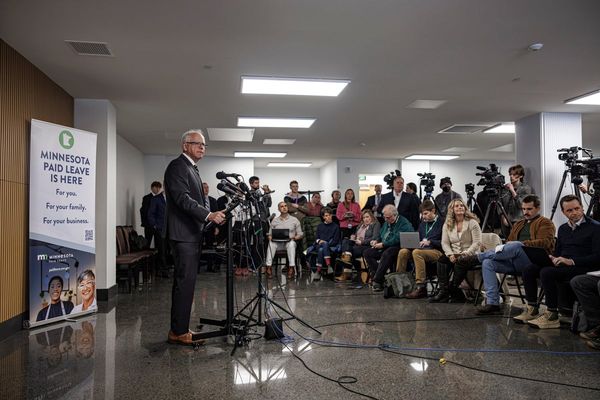One of China's most senior diplomats has been criticised for promoting misinformation after he posted to Twitter a series of photographs of Syrian children he claimed were children in Afghanistan.
Zhao Lijian is the deputy director of the Chinese Foreign Ministry's information department and a prominent "wolf warrior" diplomat known for his harsh responses to perceived criticism of the Chinese government.
Mr Zhao — who previously posted a doctored image of an Australian soldier holding a bloody knife to the throat of an Afghan child — last month tweeted a series of photos of dishevelled children scavenging metal shells and carrying unexploded ordnances.
"After 20 years' war, this is what the US has brought to the children in Afghanistan," Mr Zhao said.
But the photos, taken by Syrian photojournalist Ali Haj Suleiman, presented children in his war-torn country, not Afghanistan.
He said his work had revealed that Russian-backed government forces were attacking Syrian civilians, including children.
Mr Suleiman, who has worked for media outlets including Al Jazeera and Middle East Eye, noticed the misleading tweet last week and took a screenshot.
He tagged Mr Zhao in his post and clarified that the photos showed "what the Syrian regime and Russian forces brought to the children in Idlib".
Mr Suleiman's photo series received an honourable mention in 2021 in the UNICEF Photo of the Year Award.
It is not the first time Mr Zhao's social media use has sparked controversy.
In 2020, Mr Zhao posted a disturbing image following the release of the Brereton report, which found Australian special forces allegedly committed at least 39 murders during the war in Afghanistan.
The doctored image was drawn by a Chinese artist and portrayed an Australian soldier holding a knife to the throat of an Afghan child alongside a note reading: "Don't be afraid, we are coming to bring you peace!"
It led to a diplomatic dispute between the two countries.
Mr Zhao pinned the image on the top of his Twitter profile after Prime Minister Scott Morrison urged the Chinese government to apologise.
This time around, however, Mr Zhao deleted Mr Suleiman's photos after receiving a complaint from the photographer.
"He did not contact me and did not apologise after deleting the tweet," Mr Suleiman told the ABC.
"I never thought other governments might use my photos to build their political narratives."
The ABC contacted the Chinese Foreign Ministry for comment, but did not receive a response by deadline.
China's Twitter diplomacy
Mr Zhao joined Twitter in 2010 and has more than 1.1 million followers, becoming one of the most active Chinese officials on the social media platform, which is banned in China.
Unlike his Weibo account in China, which mainly publishes official and approved announcements and commentary pieces from state-run media, he posts tweets in English and appears to present more personal perspectives.
Wang Pan, a China studies expert at UNSW, said China's "wolf warrior" diplomats were more assertive, strident, and digitally engaged than earlier generations of diplomats in voicing their personal views on social media.
"I think it represents Zhao's own perspective rather than the government's, despite the official labelling of his social media account," Dr Wang said.
Dr Wang said it was common for Chinese government officials to use Twitter to exert the country's influence, engage with foreign publics, and gauge opinions.
But she said sometimes Chinese officials' social media use backfired, like a tweet posted in 2020 during the Black Lives Matter protests in the US.
At the time, Hua Chunying, the director of the Foreign Ministry's information department, criticised "racial discrimination and inflammatory expressions of racism and hatred" in the post.
But she started the tweet with "All Lives Matter" — a controversial phrase used by supporters of President Donald Trump, seen by some as dismissive of racism and violence perpetrated against people of colour.
Some Chinese American netizens slammed Ms Hua's tweet as self-contradictory and questioned her professionalism as a diplomat.
Dr Wang said in the broader context of the ongoing US-China tensions, it was unlikely Mr Zhao intentionally distorted the truth, but rather it was a reflection of his diplomatic instincts towards the US.
Chinese officials often accuse the US of being responsible for a 'new Cold War' and point to the war in Afghanistan as evidence of Washington's detrimental impact on world affairs.
"Zhao's post is embarrassing in this round of Twitter diplomacy," Dr Wang said.







